Julian and Cathy got married in China in October 2015 and April 2016, but Julian wanted Cathy to have a chance to meet all her new American family and Julian’s American friends, and obviously not all of them were going to China for the ceremonies. (In the end, two of Julie’s siblings and a few of Julian’s friends made it.) Obviously, there would have to be an American reception as well as all the stuff in China.
As it happens, the McKenna side of the family holds reunions sometimes. They talk about it a lot more than they do it, but reunions do happen occasionally. Usually Julie winds up doing most of the organizing.
In 2015 there had been discussion going on in e-mail for months about when and where the next reunion would be, with various ideas tossed out, none of them generating all that much enthusiasm. Finally, when it looked as if it would drag on forever without a reunion actually happening, Julie just announced that unless someone came up with a better plan right now, she was going to charter a sailboat on Chesapeake Bay in late June, 2016. That seemed like a good time — school would be out, and there were some birthdays in the family around then, and, you know, reasons.
No one came up with a better plan.
Julian knew about this, so he suggested having the wedding dinner the night before — everyone on his mother’s side would already be gathering for the family reunion, so they wouldn’t need to make a second trip.
That sounded good, so we agreed, and planning began.
I probably should have been more involved in the planning than I was, but I mostly left it to Julie, since the reunion was her idea and her family. It didn’t occur to me immediately that we would also be inviting my family, though of course we did.
It seemed like a good idea to find a Chinese restaurant for the event, for various reasons, so we settled on New Fortune, in Gaithersburg, MD, a large restaurant that does lots of weddings and that we knew made good food.
Unfortunately, they had already booked a huge Chinese wedding in the main hall for that night, but they could fit us in their secondary hall, which seats fifty at five tables of ten. In an emergency they could squeeze in a sixth table, for a total of sixty.
That meant we needed to settle on a guest list of fifty or sixty, so we set to work on that. Julian’s sixteen aunts and uncles gave us a starting point, and there were his twelve cousins, two of whom are married…
Not all of those wanted to attend. A couple of uncles by marriage declined immediately, as did about half the cousins, leaving more room for Julian’s friends, and family friends, and a couple of Cathy’s friends who were in America.
We wound up with a list of fifty-eight names, but some people begged off, and a couple were added. One of Julie’s brothers decided to skip the whole thing rather than find someone to tend his dogs — or at least that was his excuse, which ignored the fact that his wife and daughters could look after the dogs. A couple of siblings tried unsuccessfully to talk him around.
And then there was the Chinese side of the family. We had not initially thought anyone would be coming from China except Cathy, but then we learned that her parents and at least one uncle and maybe an aunt or two were interested. In the event, they waited too long to apply for visas — there’s a backlog at the U.S. consulates. Cathy’s parents managed to jump the queue, but the other relatives were left out.
The final (or so we thought) list came out to exactly fifty people. That lasted about a day and a half; then one of Julie’s sisters who had said she would come, and who had arranged to share a hotel room, got cold feet about traveling and backed out, leaving her would-be roommate in the lurch — especially since that sister had supposedly been going to make the travel arrangements, but hadn’t, so that her roommate had to book a flight at the last minute.
Julie invited a friend from work to fill that now-empty fiftieth seat, and she agreed, but then she had to back out the day before the event, so the final total was forty-nine.
I should also mention that one of Julie’s other sisters (she has three) arranged a room block at a local hotel, which sounds simple enough, but proved to be amazingly difficult. You’d think a hotel would have this down, but one stupid little thing after another went wrong — lost paperwork, buggy website, poor communications. It did eventually happen, and I don’t think Eileen got stuck with any extra charges, but it was far more trouble than we expected.
Anyway, the arrangements were made, and people started arriving a week or so before the event and trickled in right up to the last minute. We put Julian, Cathy, and her parents, and our daughter Kiri, up at our house, while everyone else coming any distance wound up at hotels — not all at the hotel we’d booked the block at, thanks to some of those hassles I mentioned, but mostly there.
I rented a van to make it easier to haul people around, and used it to pick up Julian, Cathy, and her parents from the airport. They arrived on time on Wednesday; their luggage (with their wedding clothes in it) showed up at 3:00 a.m. Friday morning.
Some old friends came all the way from Tennessee, which surprised the heck out of us.
All four of my surviving siblings came; I think this may have been the first time this century than all five of us were together. And where the original idea had been a McKenna family reunion, only five out of the seven siblings attended.
The night before the main dinner we had a small informal buffet dinner at the house, which my siblings all attended; I think that came to about a dozen people in all, noshing on sandwiches from a supermarket deli.
And finally, the day came. Julie went up to the restaurant early to make sure everything was ready, and several carloads of us arrived at the appointed time. A couple of people made a wrong turn going into the restaurant and wound up at the other wedding briefly, but figured it out.
I am very glad we didn’t need the sixth table; the room was pretty crowded with five. Julie had arranged things intelligently; everyone who spoke Chinese, plus Julian, sat at the central table. One corner table was Evanses, one was McKennas, and two were friends, roughly sorted by who knew whom.
Once everyone was there they started serving — ten courses. Most of it was absolutely delicious. There was a chicken course I didn’t care for, but hey, tastes vary.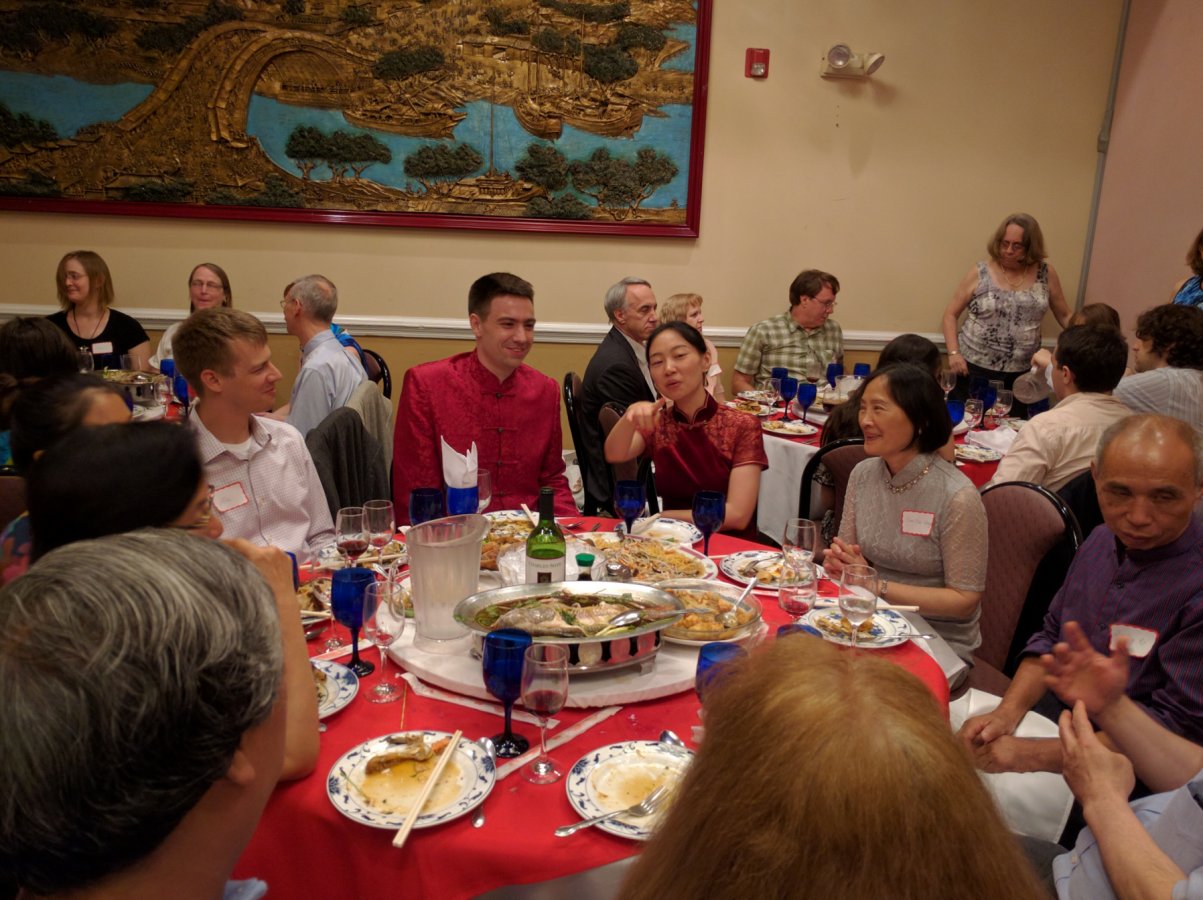
One hitch was that it turns out two of my siblings don’t much care for seafood; if I’d ever known that I had completely forgotten, though thinking about it we never ate much seafood growing up, despite living in New England. Since this was in Maryland and the cook was from coastal China, there was a lot of seafood involved, which left their choices a bit limited. I regret that. But hey, I liked the crab soup and the crab-filled shrimp balls and the whole boiled fish, and so did most of the other guests.
Julian and Cathy circulated among the guests, a few very brief speeches and toasts were made, and in general it was a pretty typical wedding dinner.
Eventually the food stopped coming, and people stopped eating and began drifting away. We thanked everyone for coming, settled the bill, and went home.
That still left the family reunion; the following day several carloads drove out to Annapolis. Some of us toured the Naval Academy; others just poked around the shops; and in time we all wound up at the docks and boarded the Windward II for an hour-long sail on Chesapeake Bay. I think we’d booked space for twenty-four, but only twenty-two actually made it onto the boat — almost all family, but a couple of Cathy’s friends, and a couple of ours.
Various guests were invited to take the wheel for awhile. Cathy’s mother was one of them, despite not being able to understand any of the English instructions; gestures proved sufficient. Cathy told us later that that was her mother’s favorite part of the trip.
And after the sailing we headed across town to Mike’s Crab House, where we had an hour-long wait to be seated but eventually wound up fitting all of us at two adjoining tables.
And that was the end of the official event. It took a couple of days before everyone was gone; Cathy, Julian, and her parents did some touristy stuff in Washington and Harper’s Ferry before moving on to New York. (Hey, you don’t fly all the way from China and then head right back; they were in the U.S. for two weeks in all.)
At last, though, it was all over except eating the leftovers. Julian and Cathy were quite thoroughly married, and on their way back to Hangzhou.
Save


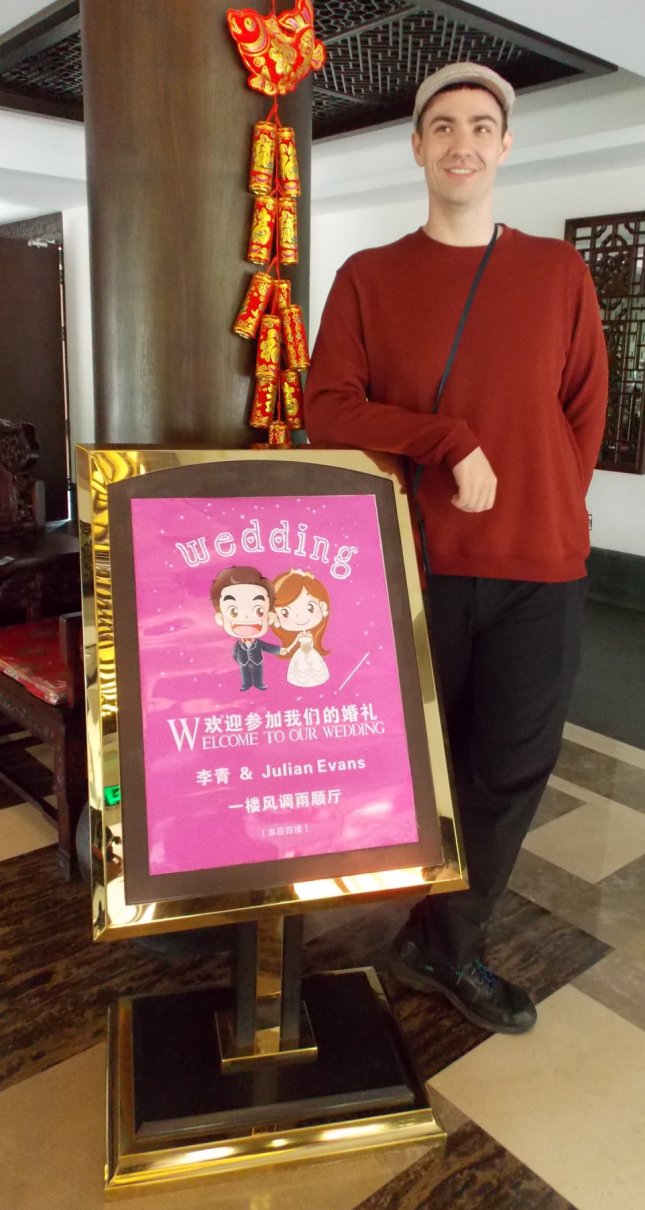
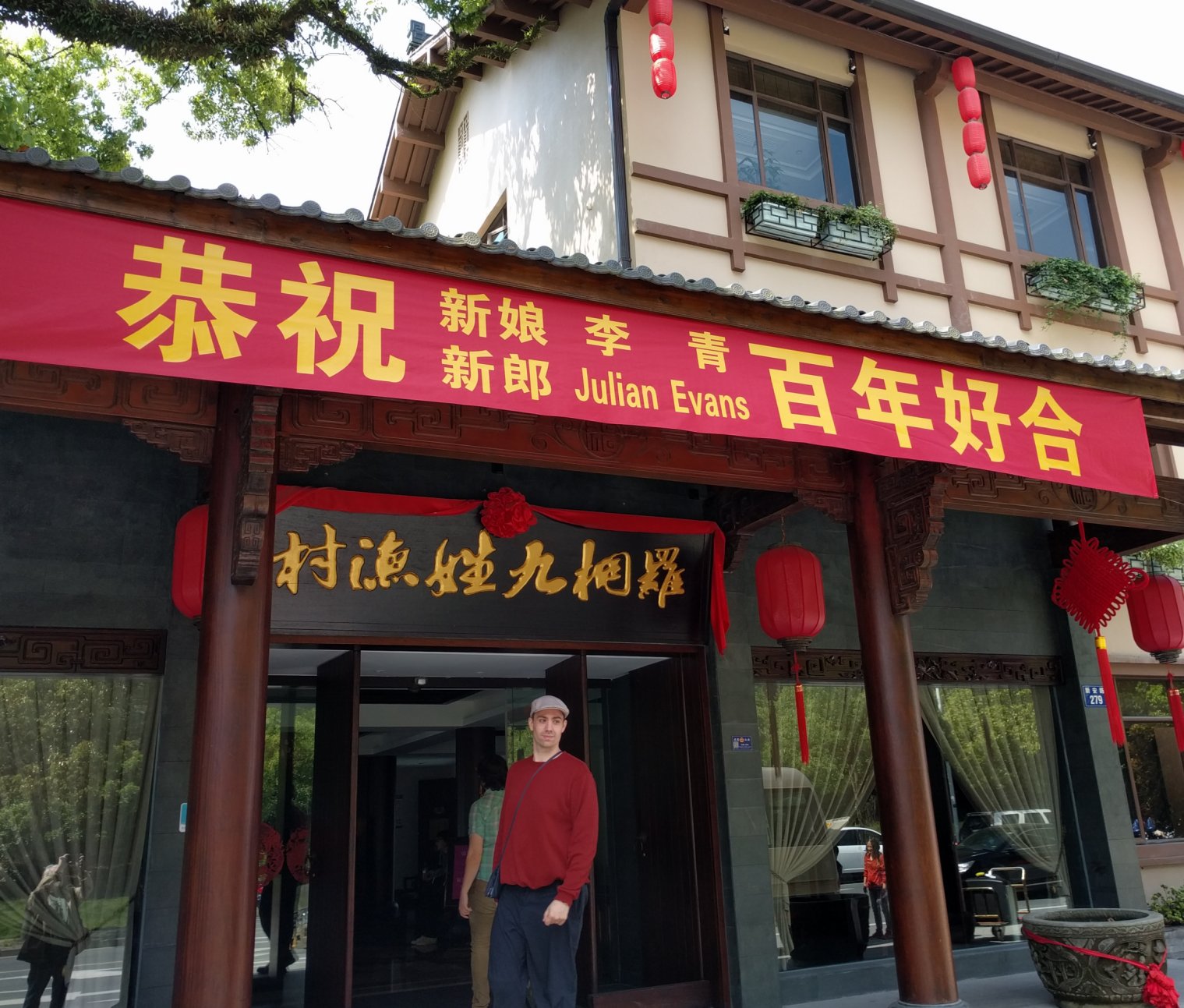 But when the bus delivered us to the hotel, we began to realize. The hotel had a big banner across the front announcing the wedding of Li Qing and Julian Evans; the wedding guests occupied pretty much the entire hotel. In the lobby, while we were getting checked in, I noticed there was a video playing on a loop showing a hugely elaborate ceremony with dancers and drummers and so on, including people holding huge shrimp puppets over their heads. “At least we won’t be doing anything like that,” I thought.
But when the bus delivered us to the hotel, we began to realize. The hotel had a big banner across the front announcing the wedding of Li Qing and Julian Evans; the wedding guests occupied pretty much the entire hotel. In the lobby, while we were getting checked in, I noticed there was a video playing on a loop showing a hugely elaborate ceremony with dancers and drummers and so on, including people holding huge shrimp puppets over their heads. “At least we won’t be doing anything like that,” I thought.
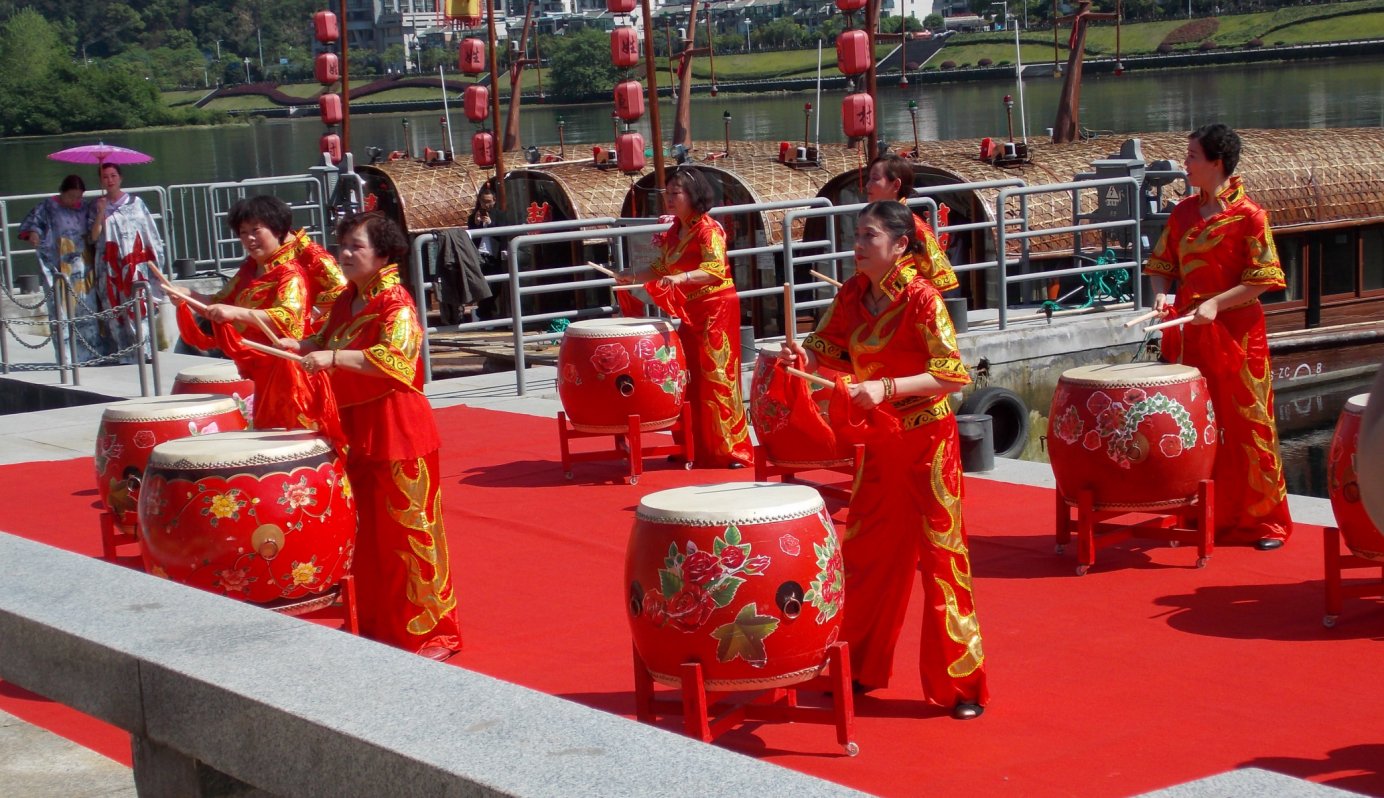
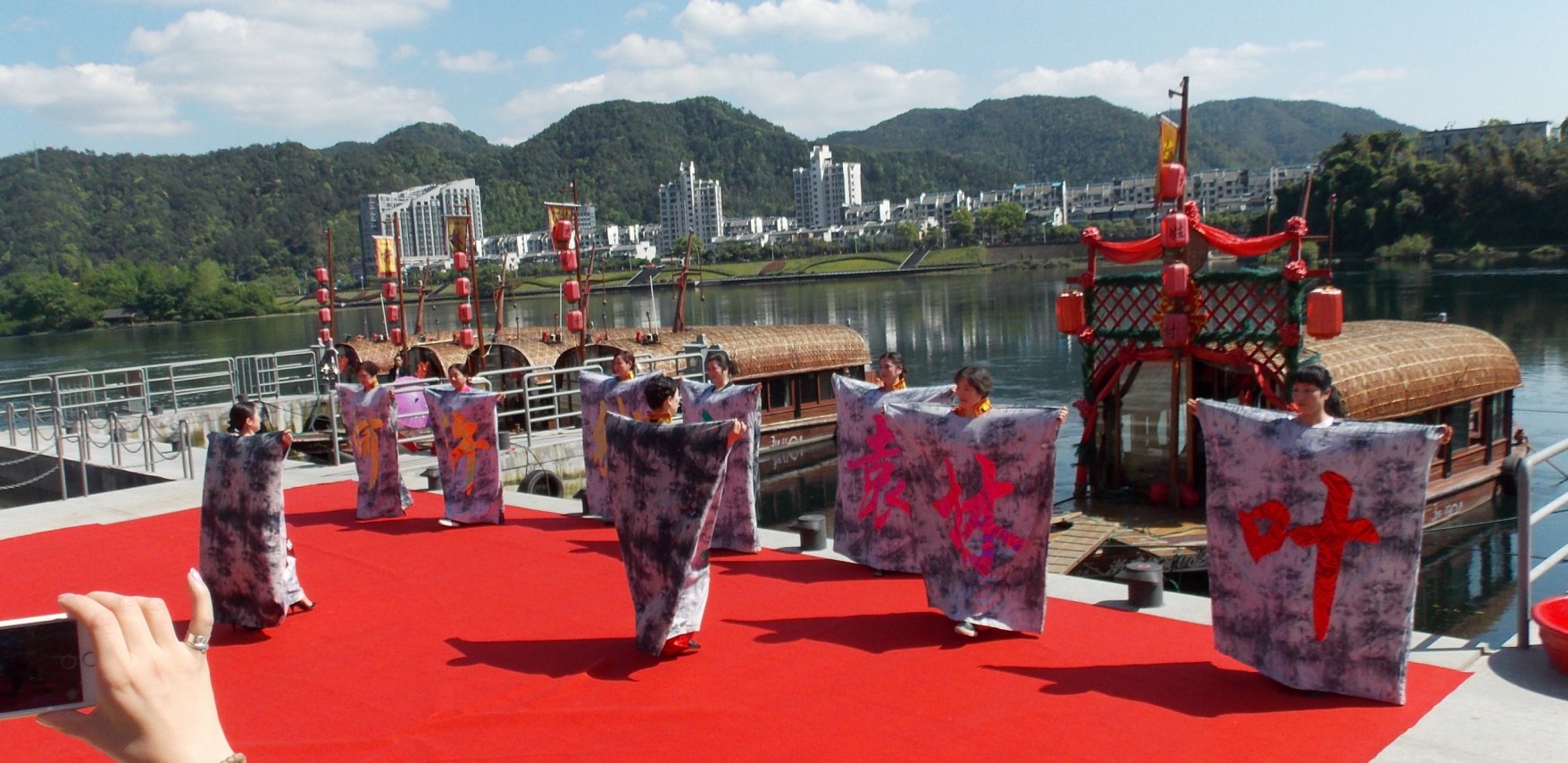
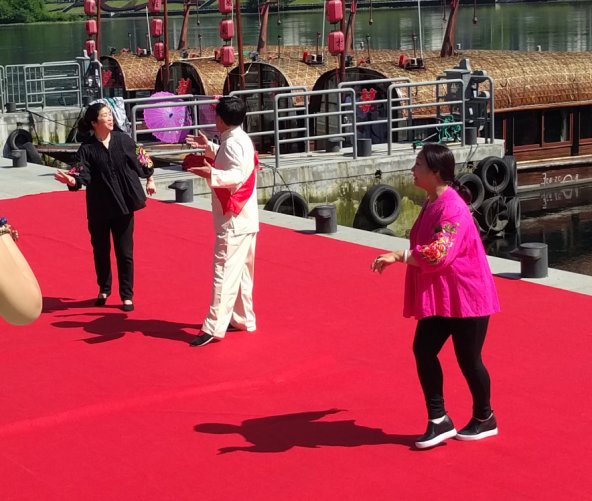
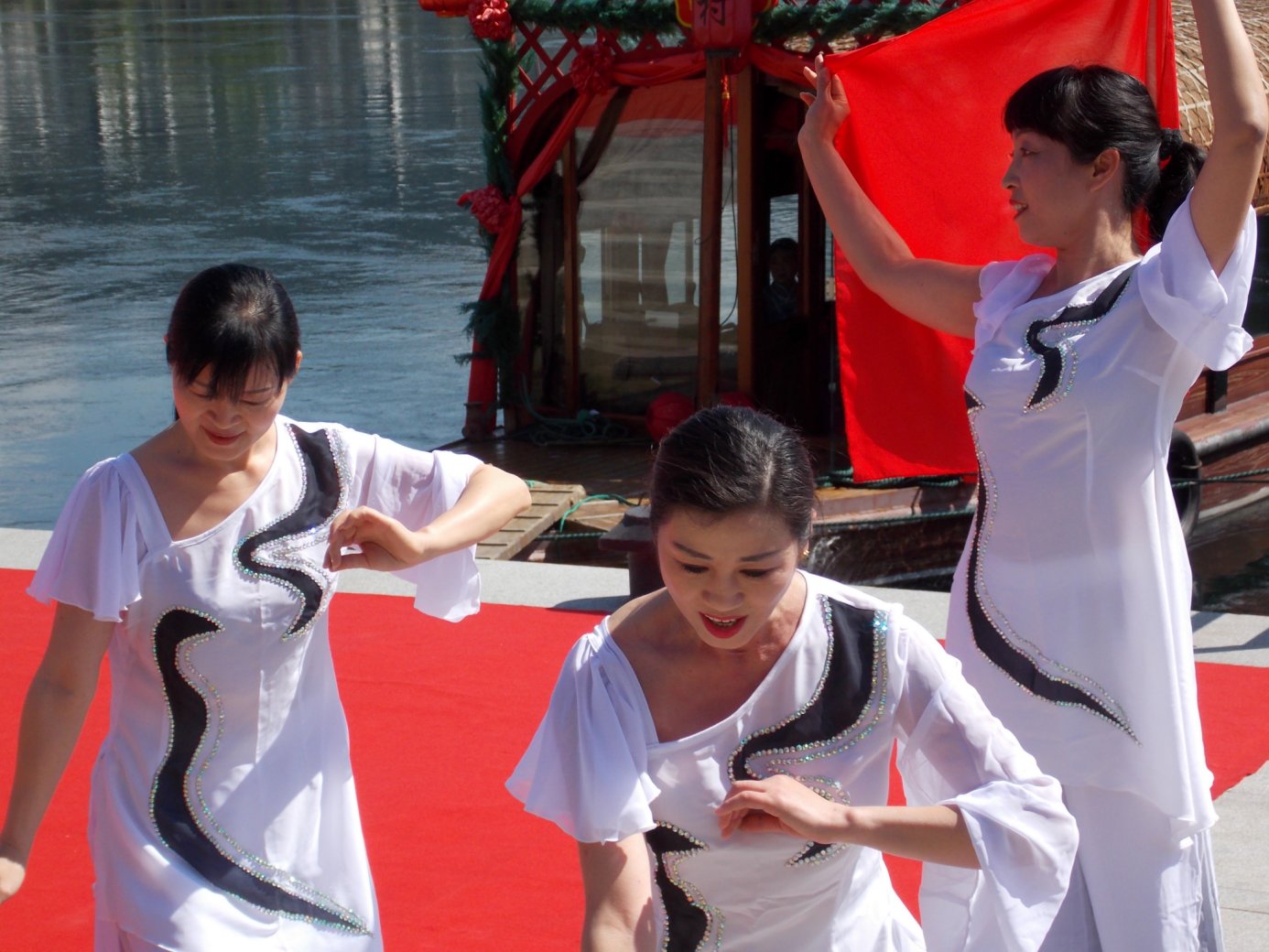
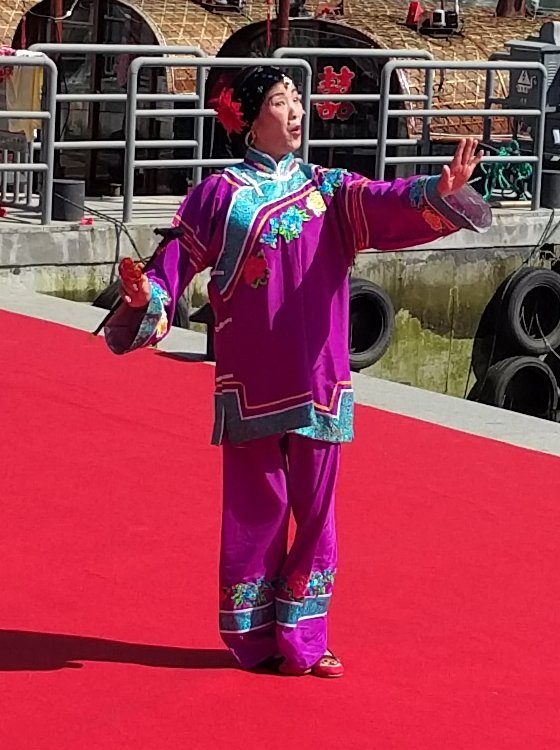
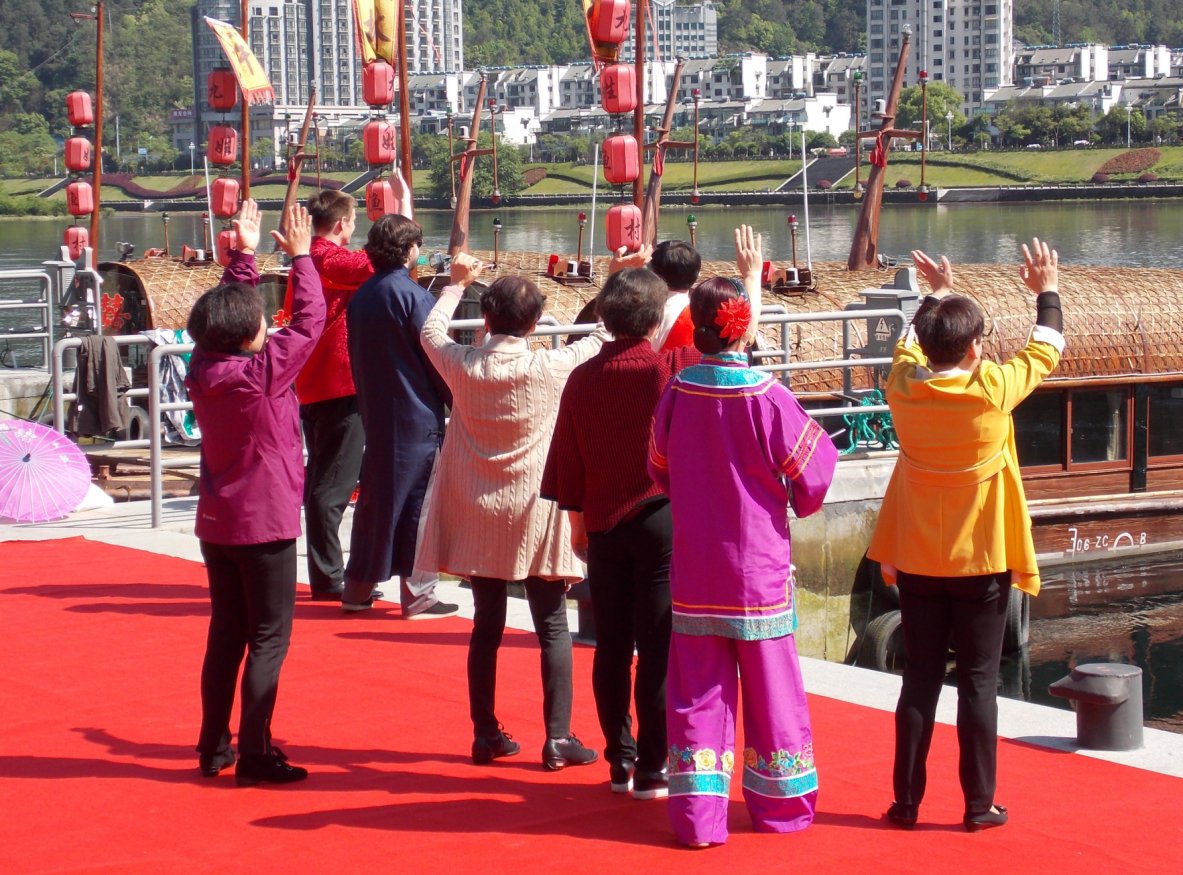
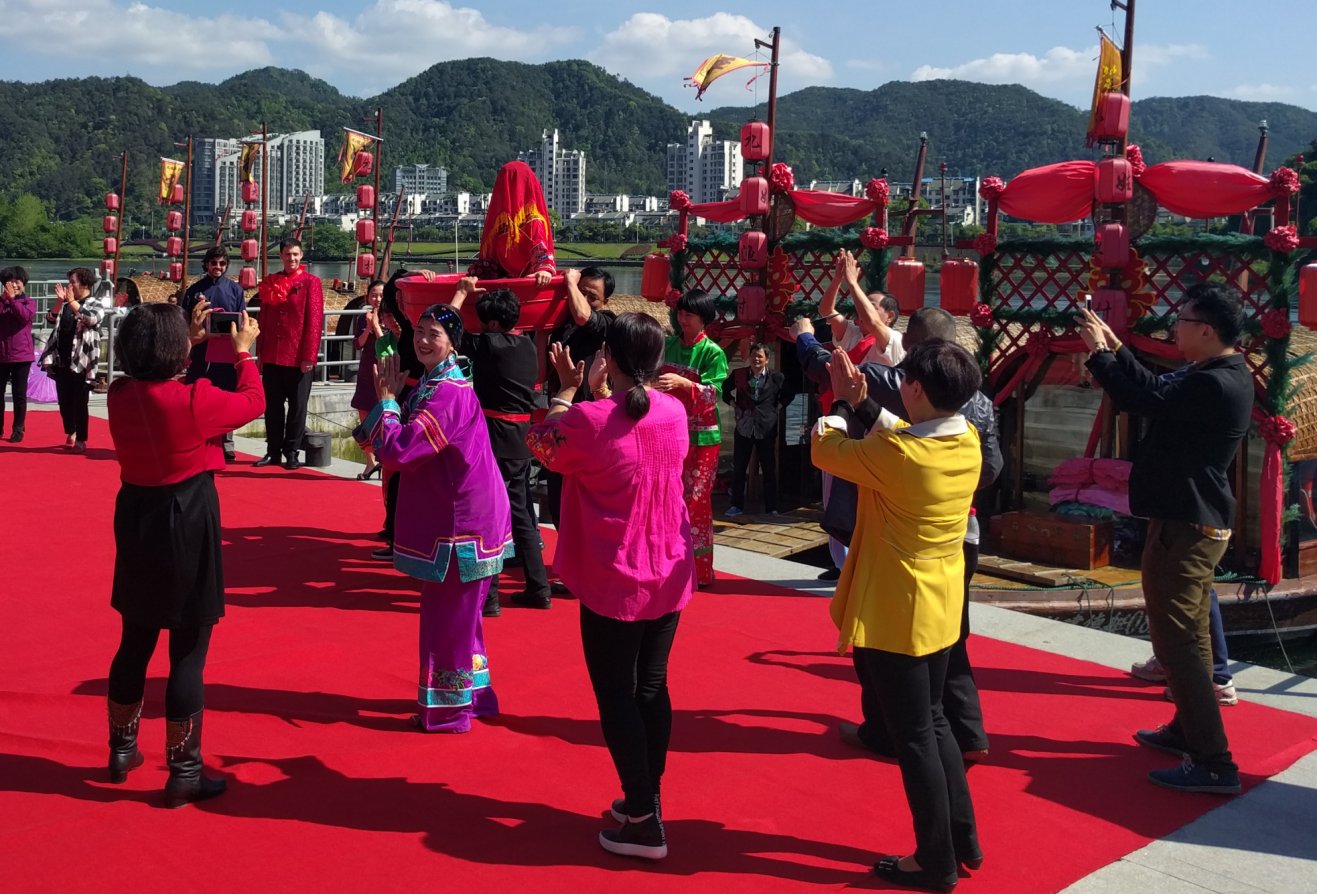
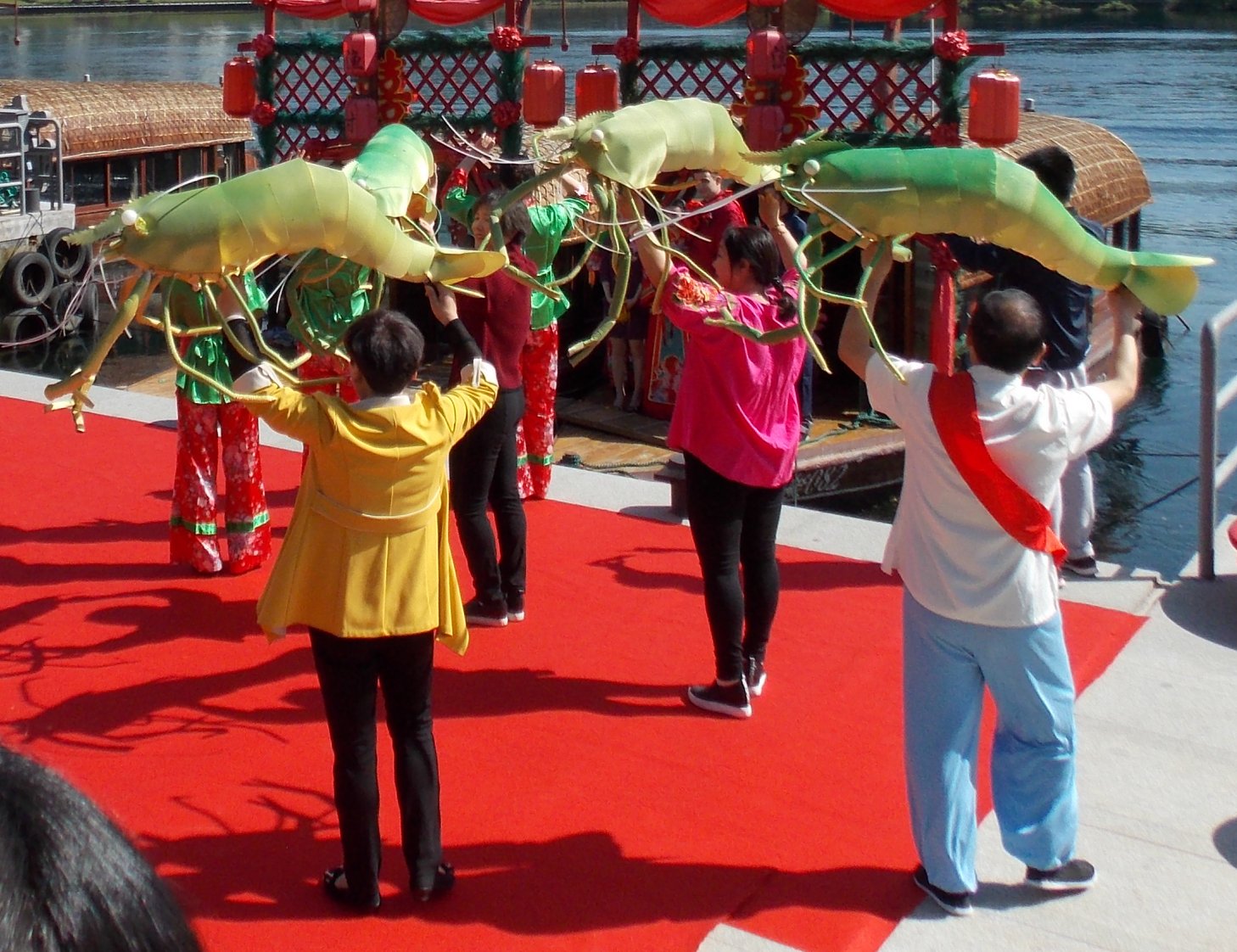
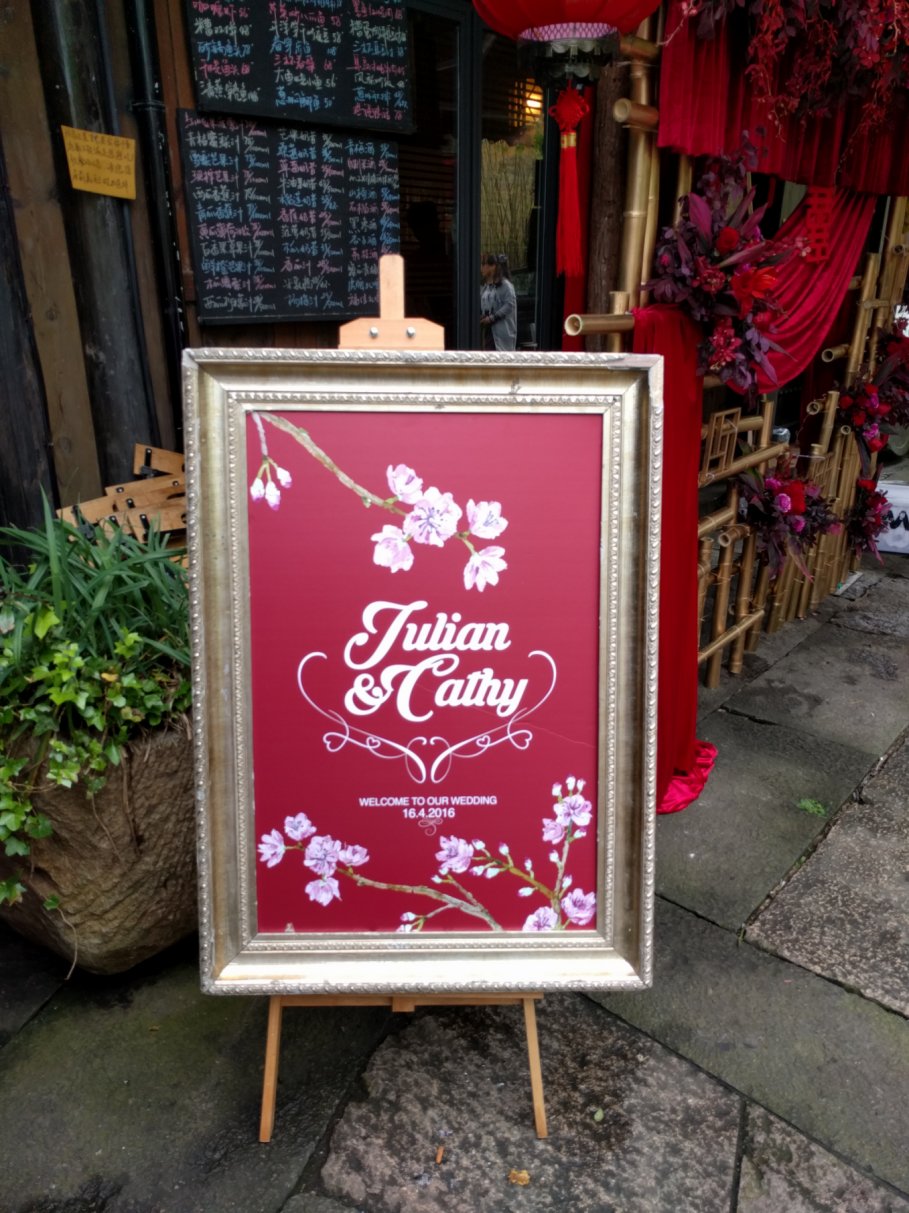
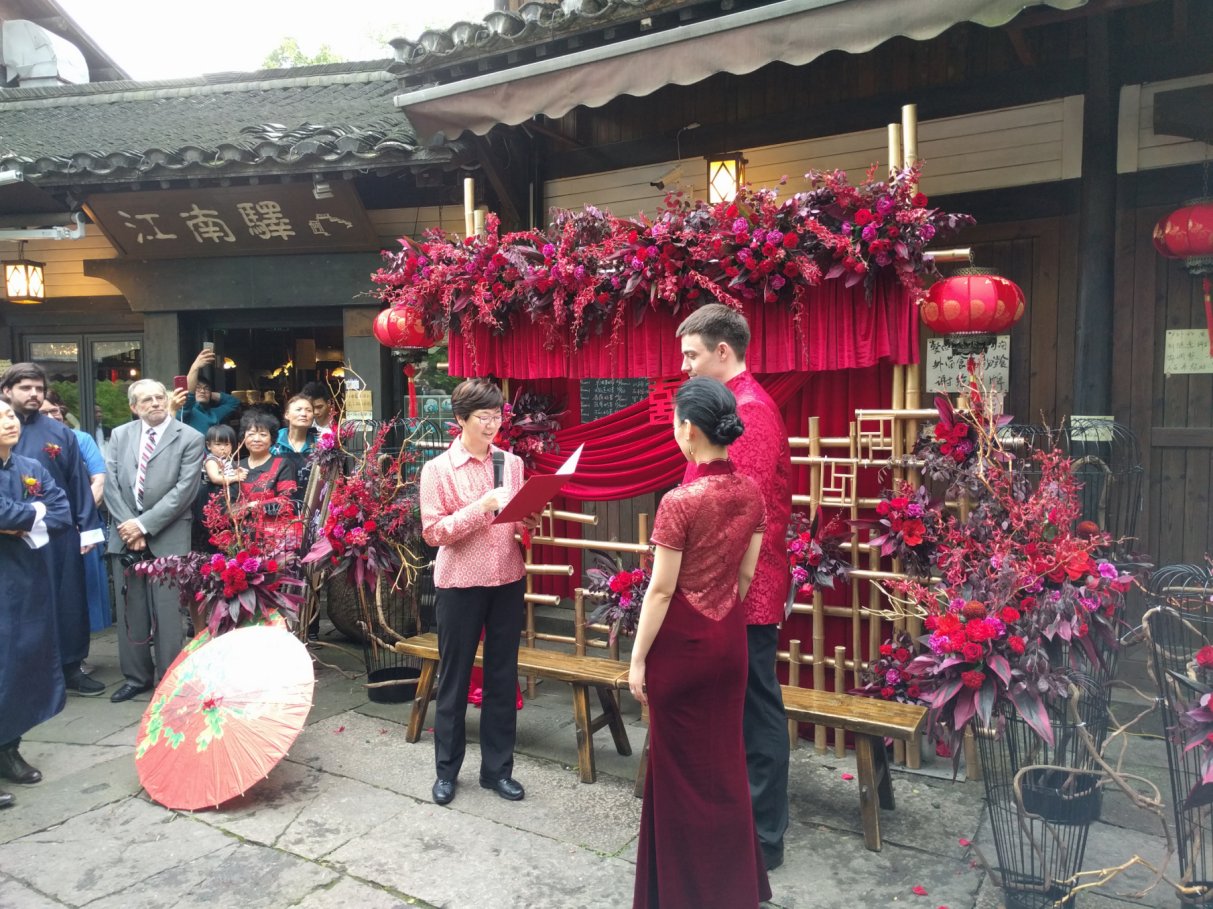
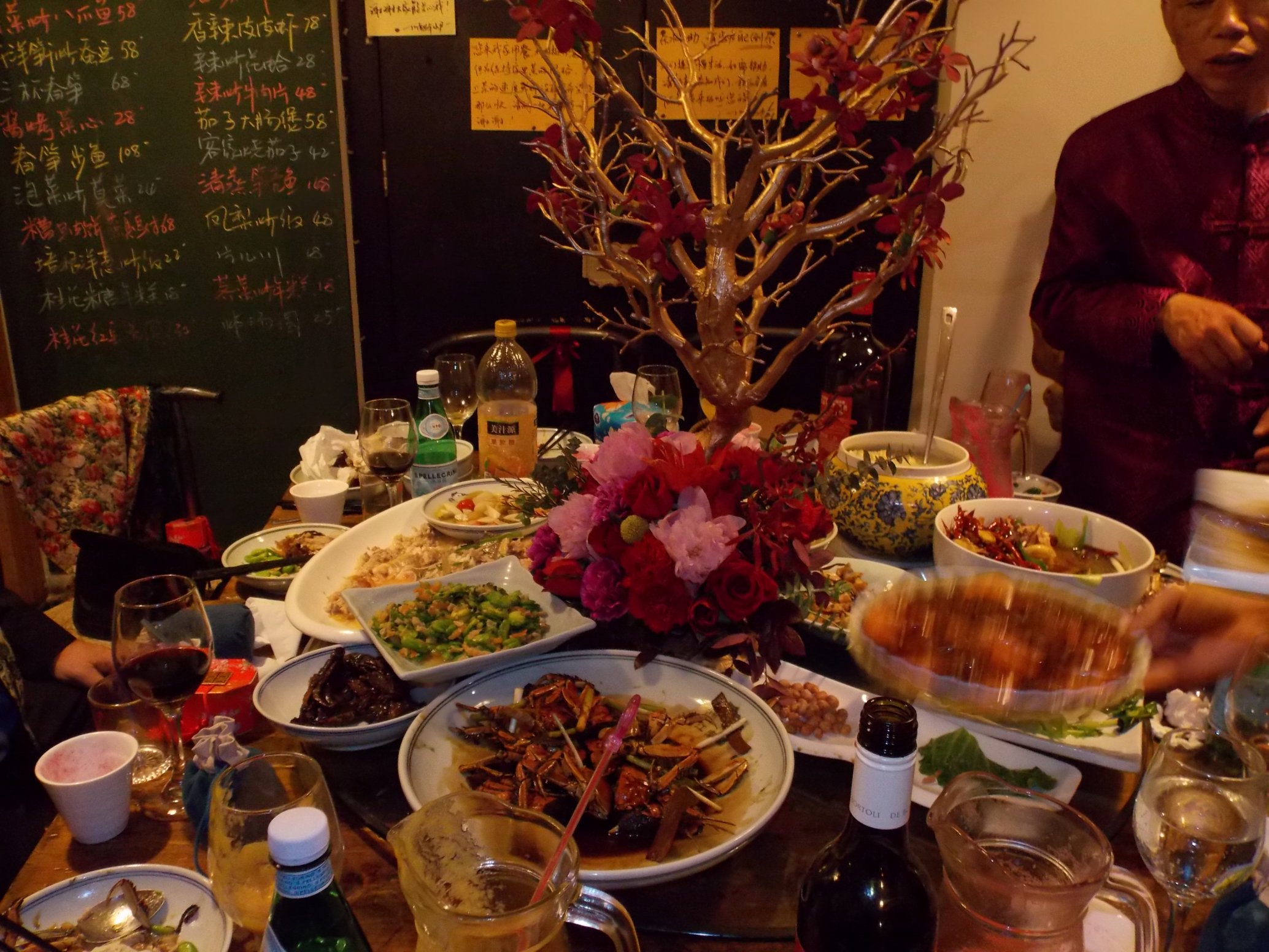

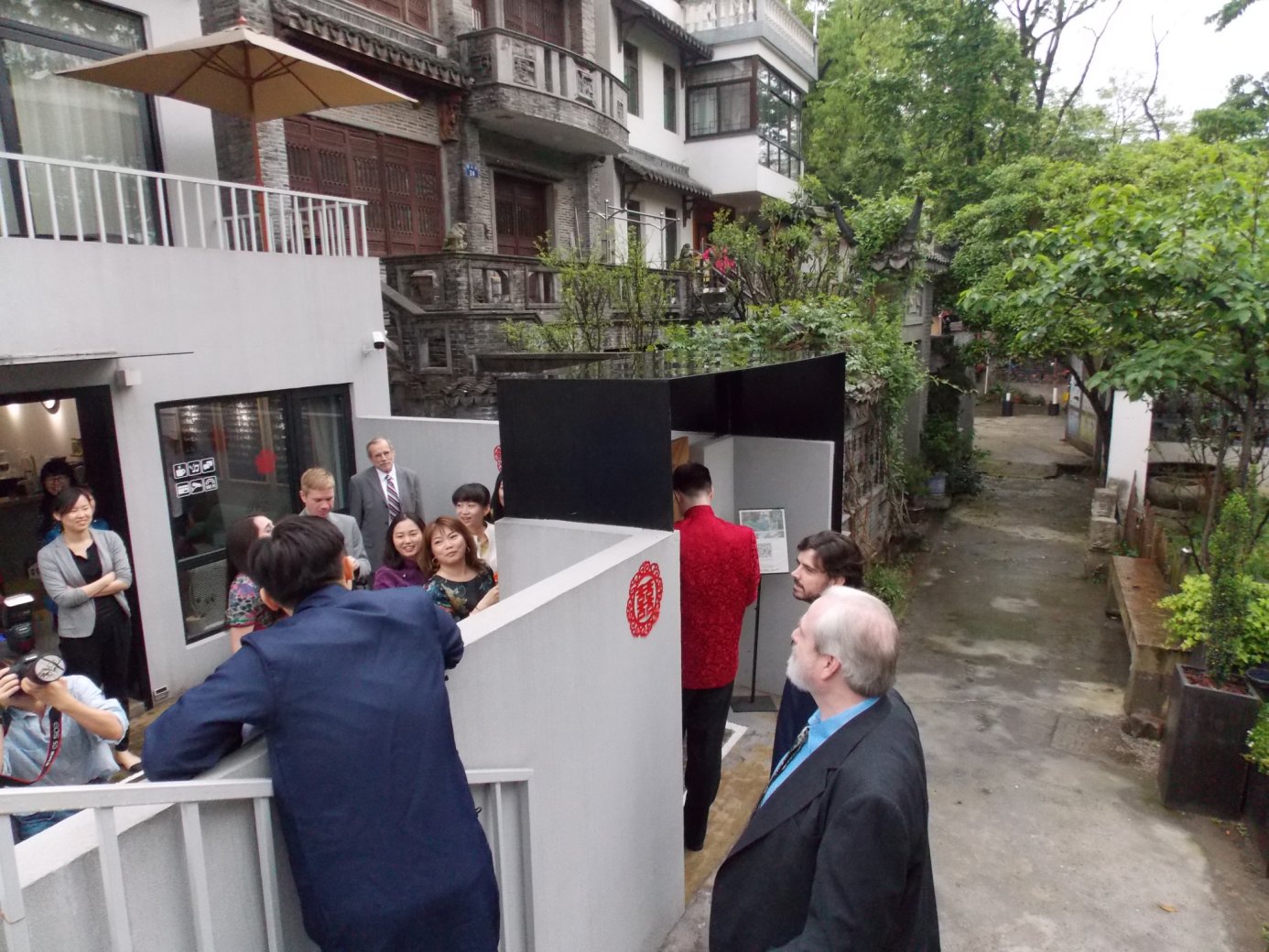
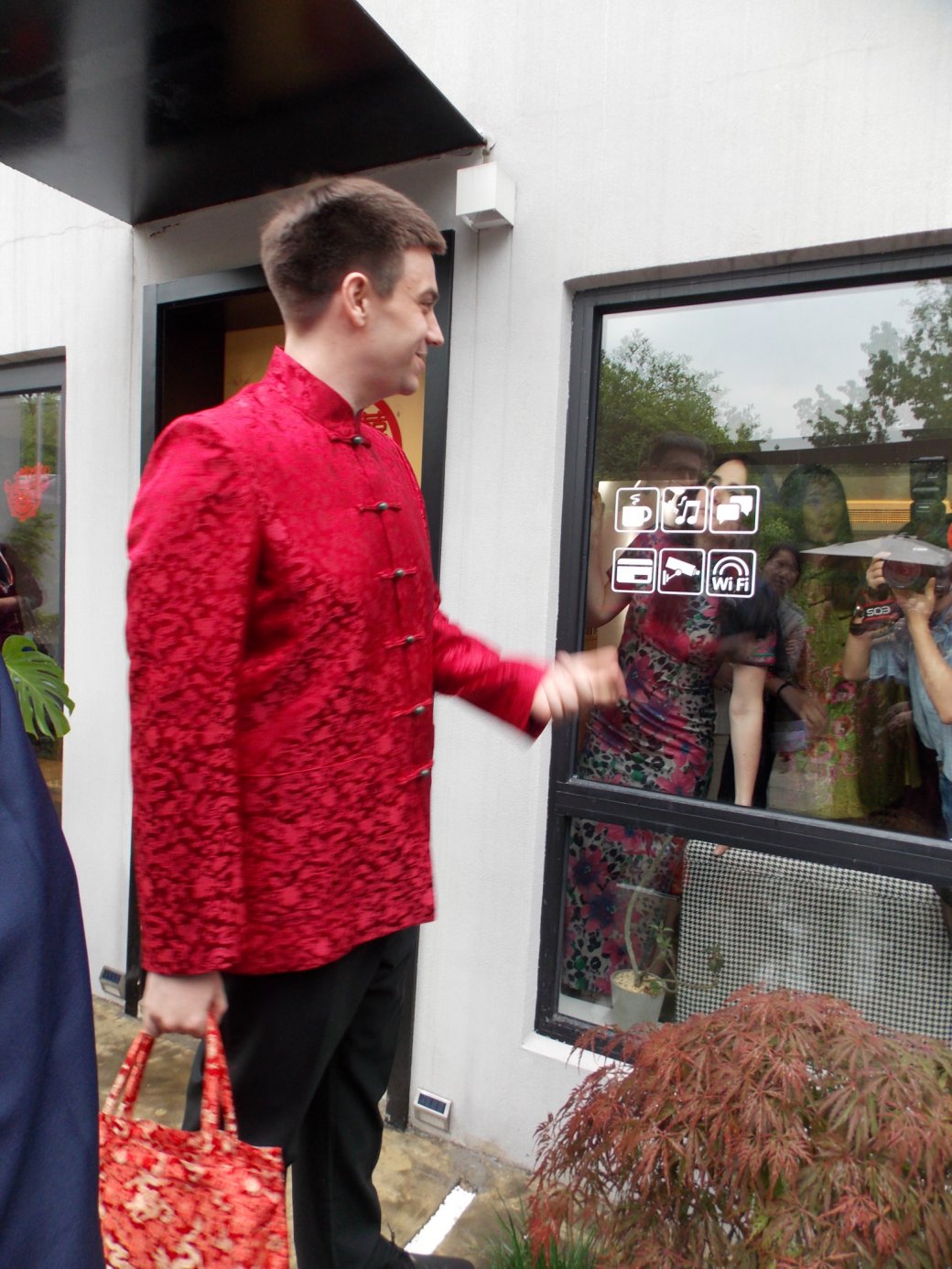 Eventually, though, he won his way into the courtyard and faced the second door, into the residence. I don’t remember most of the challenges at this level, but they demanded he demonstrate his physical fitness by doing push-ups. He didn’t want to mess up his nice wedding shirt, so it took a moment to find a suitable spot for that. He used up his remaining supply of hongbao and candy, but eventually was allowed into the villa.
Eventually, though, he won his way into the courtyard and faced the second door, into the residence. I don’t remember most of the challenges at this level, but they demanded he demonstrate his physical fitness by doing push-ups. He didn’t want to mess up his nice wedding shirt, so it took a moment to find a suitable spot for that. He used up his remaining supply of hongbao and candy, but eventually was allowed into the villa.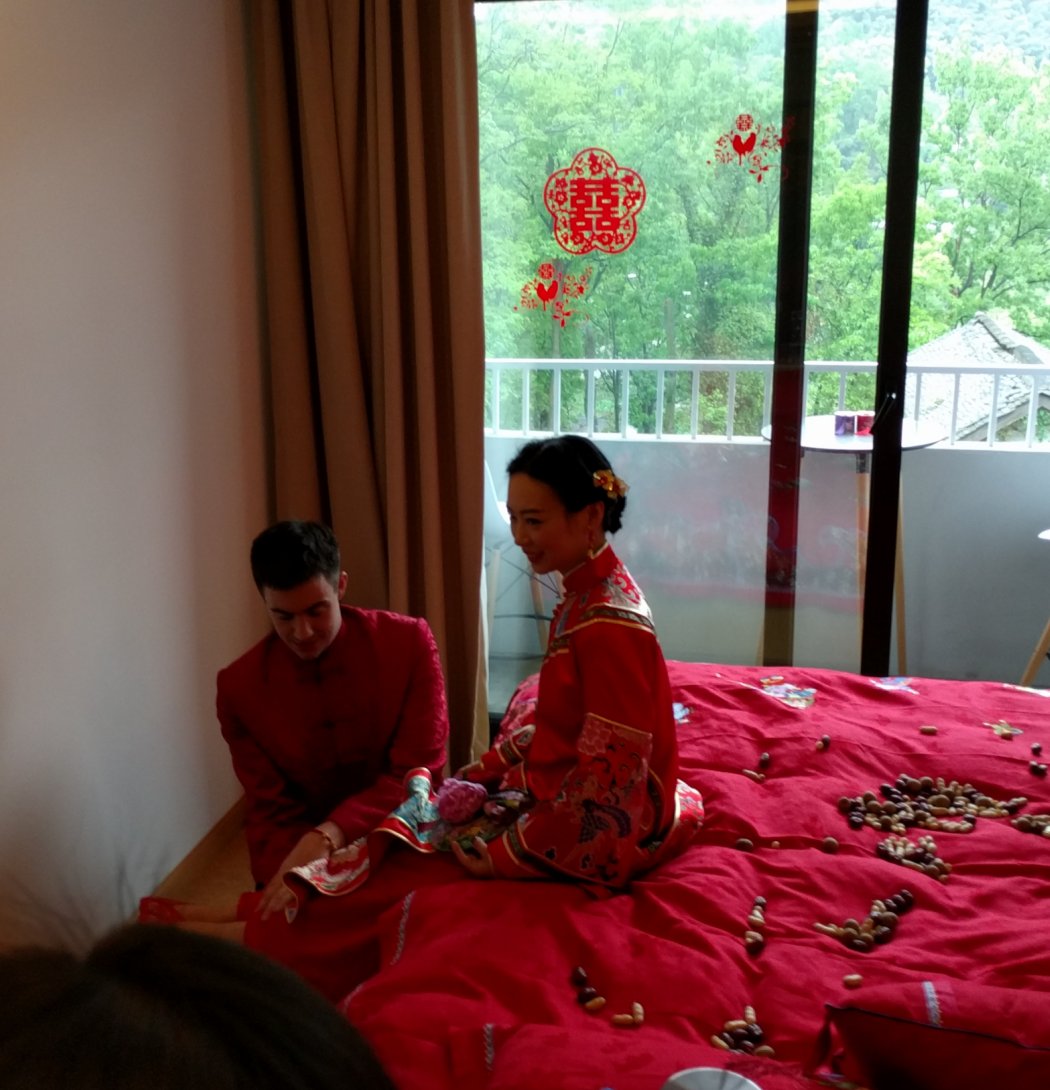 There Cathy was waiting, in her bridal attire, on the bed, which was strewn with peanuts, dates, lotus seeds, and walnuts; the names of those four items are a Chinese pun, meaning “Have a baby soon.” Julian was not quite done with his tasks, though; the last one was to find a hidden slipper and put it on Cathy’s foot.
There Cathy was waiting, in her bridal attire, on the bed, which was strewn with peanuts, dates, lotus seeds, and walnuts; the names of those four items are a Chinese pun, meaning “Have a baby soon.” Julian was not quite done with his tasks, though; the last one was to find a hidden slipper and put it on Cathy’s foot.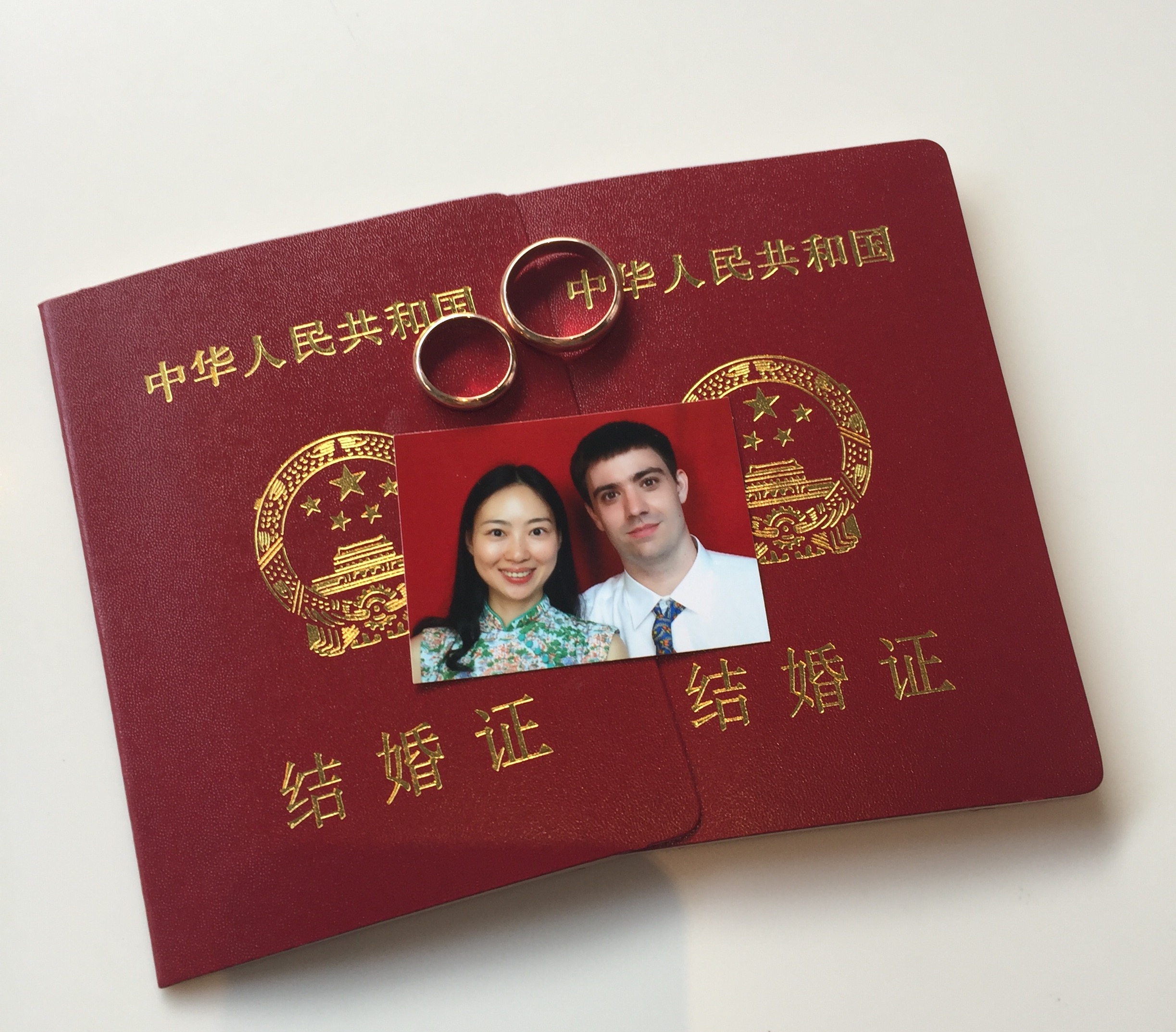
The Five Latest Comments